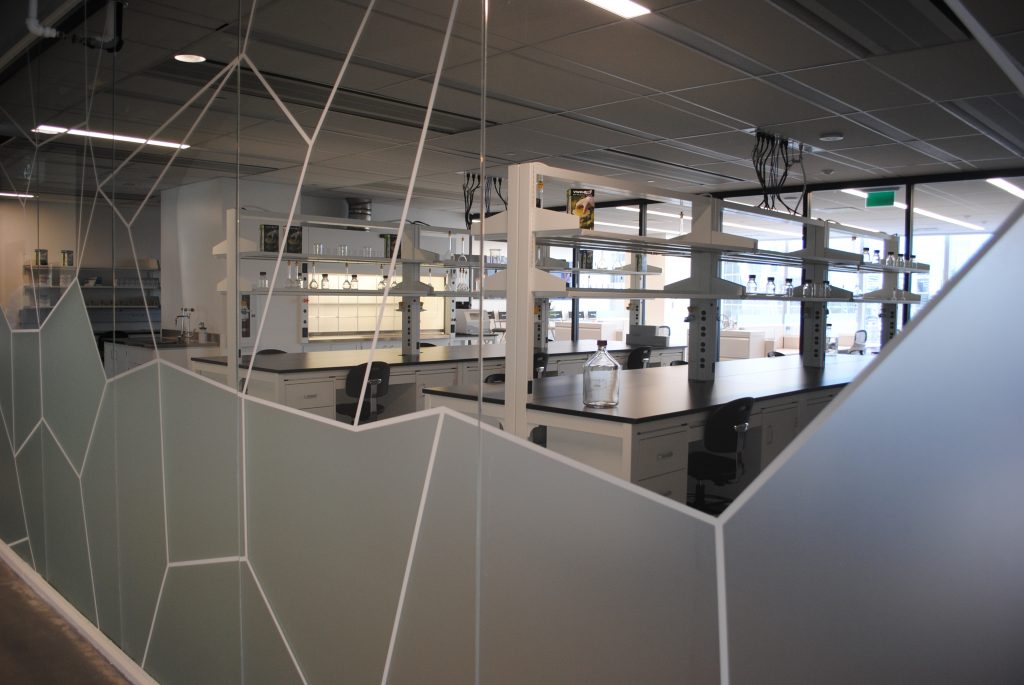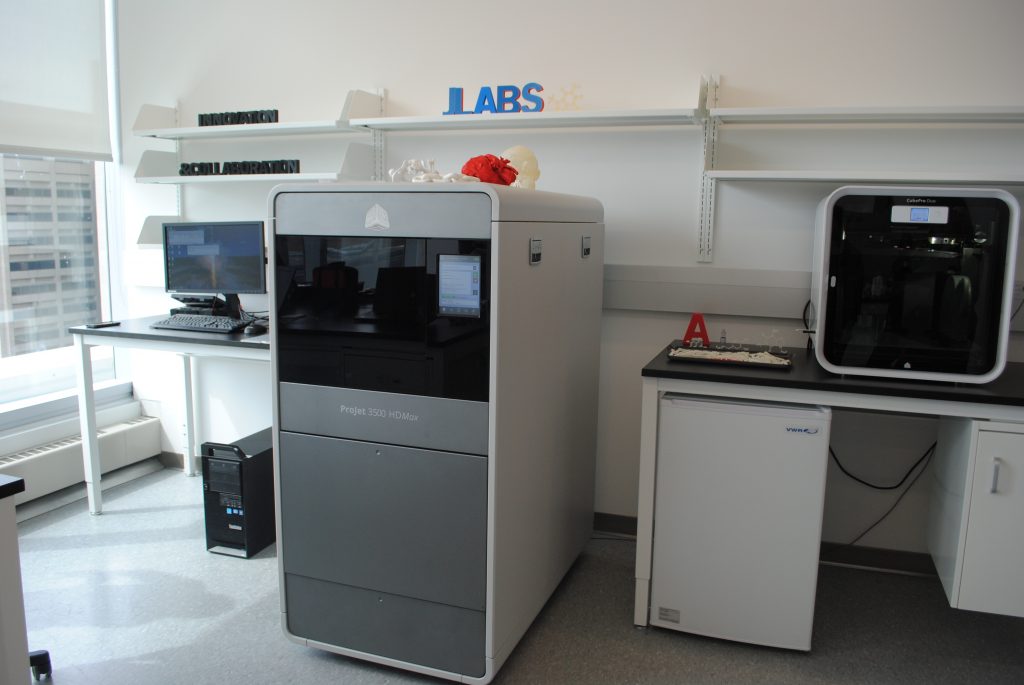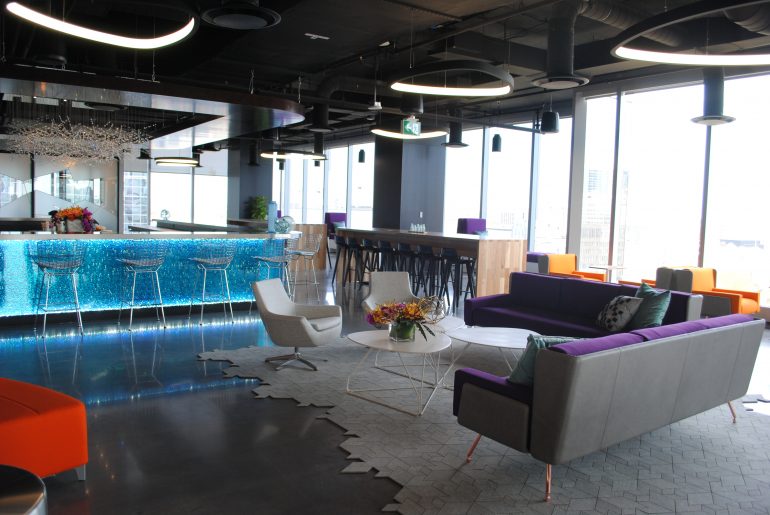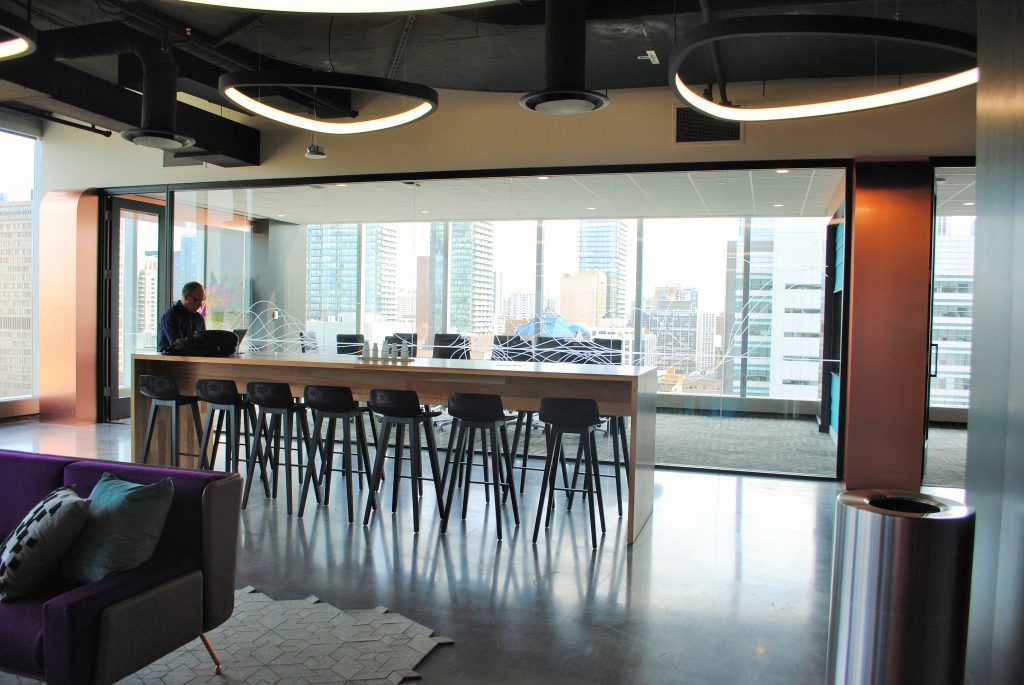Startups have the reputation — and track record — for innovating in areas where large corporations might struggle. Where larger companies may have to deal with legacy software and siloed departments, startups can be nimble with small teams and a willingness to pivot heir product early on. It’s no surprise, then, that these large corporations are channelling this spirit with their own incubators; recently, Cisco announced the opening of its own innovation centre, while institutions like Tangerine seem to be announcing partnerships and incubators almost every week.
Johnson & Johnson, the world’s sixth largest consumer company, has been working to maintain innovation in its company in this way for years. Through J & J Innovation, which focuses on collaborations between J & J’s global businesses and entrepreneurs, the company announced the opening of the first Canadian location of JLABS, the company’s life sciences incubator model. JLABS has set up shop in Toronto, where it boasts 40,000 square feet of space within the MaRS Discovery District.
“Toronto has this microcosm of the entire healthcare system within a block. For us it’s to be right in the middle of this condensed set of resources was an opportunity for us because we feel that we can add something to this system,” said Melinda Richter, head of JLABS.
JLABS @ Toronto provides shared lab space and offices, modular lab suites and access to scientific, industry, and capital funding experts within the space, and accommodates up to 50 startups. Currently, the incubator houses 22 startups.
“When I looked at the difference between commercializing between health and tech, it was dramatically different. In the tech industry you give a couple of people some computers and a thousand dollars, a few years later they can turn around and sell it to Microsoft or Google for $200 million,” said Richter. “In the life science industry, to get started you need at least a year, if not more, to raise money, get your infrastructure running, buy your equipment, get your experts in place; and even then it takes at least eight to 12 years and billions of dollars to get a drug to market.”
Last year, the company announced that it was building the space in part with $19.4 million in government support. The layout of the space is an odd mix between the the stereotypical hospital setting and tech incubator — sanitary with fresh white walls and complete with scientific lab testing materials, yet balanced out with the colourful furniture and open concept workspaces that’s become quintessential to the ideal coworking space. One could still smell the fresh paint walking through the incubator, which overlooks the space’s official partners like Queen’s Park, the University of Toronto, and CAMH, which are visible visible through the many windows.

Through JLABS, which provides an in-house operations team, Richter said that life sciences companies can spend less time thinking about the logistics of running a business, and more time accelerating their research and ensuring the products they want to bring to market are both safe and functional.
“One of the things we want to do in all of our facilities is democratize where you are, so you’re never a lab rat stuck in a dingy, dark room. In every lab, as you go through, you can see through to the outside. Everyone has an equal access to a great environment,” said Richter.
JLABS features a device and digital prototype lab that provides entrepreneurs access to highly specialized tools, as well as skill-building programs to design and develop smart health technologies. While J&J does not fund the startups, Ricther said that the space features an in-house deal team that evaluates whether startups can benefit from funding or partnering with J&J to reach global markets.
Companies at JLABS also have the opportunity to collaborate with IBM Canada to access its entrepreneurship programs and services, including IBM Watson, its cognitive business technology, and IBM’s Bluemix cloud-based development platform. While startups have to apply to be based in JLABS and pay a fee customized to the services that they require.

“We look at it across spectrum as companies have individual needs, both from individual space requirements and what they need in common research areas. Some companies will come in and say, “I need a desk a biolab and tissue culture lab, and each of those components has a certain price attached to it, which will then be added up,” Richter said that this is more affordable than companies purchasing technology and materials on their own.
“What we want to do is remove those hurdles so the best talent can progress tech, and by doing that we’re creating more opportunities and solutions possible for patients around the world. Our goal is to say our workforce is not 120,000 people strong, our workforce is millions of innovators strong,” said Richter.
The startups working out of JLABS @ Toronto include:
-
6biotech
Abcombi Biosciences Inc.
Biotagenics
Cogniciti Inc.
DNAstack
IGY Immune Technologies & Life Sciences
Immune Biosolutions
KalGene Pharmaceuticals
Ketogen Pharma Inc.
Proteorex Therapeutics Inc.
Realist Pharma
Seegene
SYNG Pharmaceuticals
Translatum Medicus Inc
Ubiquitech
App4Independence
AVROBIO
Chestnut Pharmaceuticals
Nanovista Inc.
Neutun
PinPress
Suncayr



